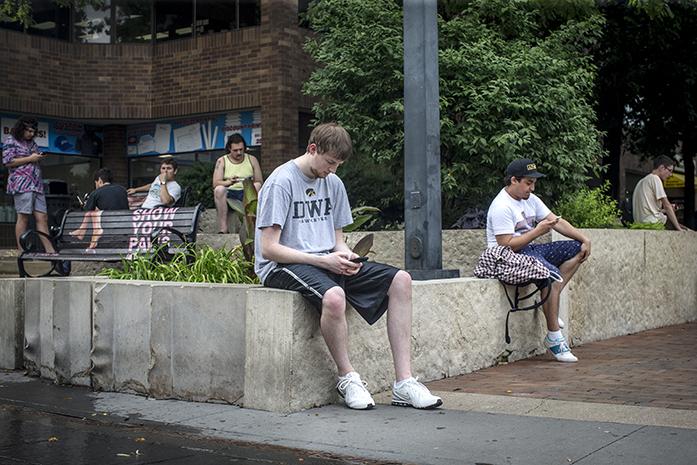By Claire Dietz
Pokémon Go was released on July 6, and fewer than two weeks later, it has become one of the biggest mobile games in U.S. history.
Pokémon Go is an app available for both Android and iOS devices in which players use GPS signals to interact with Pokémon in the real world as never before. The players may engage with “Pokéstops” — in which items can be found to help aspiring Pokémasters on their journeys — and battle other players at local “gyms.”
One of the most notable features of the game is its augmented reality function. If players grant the app access to their cameras while playing the game, the Pokémon will appear juxtaposed onto the street or table, wherever the player might be, as if it were actually there in real life.
Since its release, Pokémon Go has become the most downloaded app over a three-day period in the U.S. In addition to garnering acclaim from some critics and fans, it has also attracted a good deal of criticism for the public nuisances and at times violent incidents that have happened as a result of the game’s unique interface. The latest in a long line of disturbing incidents came Sunday, as two players were shot in Florida when a homeowner mistook them for thieves.
In Iowa City, however, the response has been more positive.
An unanticipated benefit for the downtown Iowa City community is the increased foot traffic that downtown businesses have seen since the game’s release.
Iowa City police Officer David Schwindt, the Downtown Liaison Officer, said he saw quite a noticeable uptick in foot traffic.
“It’s fairly obvious [that they’re playing the game], because they’re walking around staring at their phones,” he said. “It’s become kind of humorous to watch people walk around in the same location,” he said. “At one point yesterday, I walked out of the new Merge space and saw 25 to 30 people standing on the corner.”
Nancy Bird, the executive director of the Iowa City Downtown District, said she realizes businesses need to adapt to the changing times.
“It’s the way of the future; augmented reality is here,” she said. “[We’ll] see how it affects local businesses … it’s really too soon to tell, but we’re really encouraging businesses to have fun with it and find ways to engage people.”
Bird said the Downtown District has sent out resources to local businesses so that they can better engage with the app and with customers.
“We have some of the information out there so people who are busy working have opportunities to go out and figure out how to make that work for their business,” she said.
Simon Andrew, the assistant to the city manager, said while “businesses could use [it] to drive foot traffic into their store” and “help encourage patrons to come downtown,” there’s something larger at play.
“It seems like it’s something that could build community,” Andrew said. “When people are getting out in public spaces and doing things together, [it’s] special for the community.”
Schwindt said the only negative aspect to the game he has noticed is that people are so engrossed in the game that they may put themselves in danger.
“We have not had any injuries yet, thankfully,” he said. “I have seen a couple people have honked at because they stepped off the curb into the street without looking to see if it was safe to cross. I have asked people to keep an eye on the pedestrian signals as they are walking around.”
Schwindt also offered further advice to playing Pokémon Go safely.
“The focus has to be on the phone, but it’s always important to be aware of your surroundings,” he said. “Be aware of your surroundings, who’s around you. If you’re traveling to other parts of town you don’t normally go to, or it’s after dark, the buddy system and playing with a friend is a great idea.”



